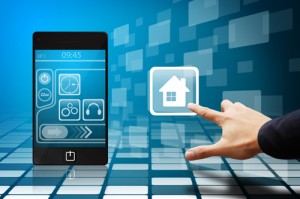Are “telematics” coming to homeowners insurance?

The ability to monitor these systems would address one of the weakest links in the chain, the homeowner.
Home automation can quickly turn your humble homestead into a “smart home” that can warn you, or your insurer that your alarm system has not been turned on or the front door has been left open. As houses become smarter, insurers are considering the opportunities that home based telemetric devices offer for accessing and monitoring risk factors within customer homes.
The use of real-time data could allow insurance companies to better access risk and possibly prevent a loss. While the technology is not yet considered mainstream, its penetration rate is rapidly increasing, and in the near future home automation could possibly result in a discounted premium for homeowners willing to let their house talk to their insurance company.
Smart home technology is quickly becoming one of the hottest trends in home building and remodeling. A study done in 2013 by Harvard’s Joint Center for Housing Studies predicts that adding smart automation will be a top trend in home remodeling for the next five to ten years.
There are many reasons that customers are adding automation to their homes. It allows them to control climate, lighting and entertainment devices from a distance. Security is another huge advantage. Smart locks allow the homeowner to control door locks as well as monitor who is entering or leaving a home. It is also possible to see when a person left as well as how long they were in your house.
Industry experts say that homeowners are starting to request a discount on their insurance based on the automation features installed in their house. The logic behind it is that insurers currently offer discounts for fire protection systems, camera’s and security systems so why not automation products.
Numerous studies have shown that while consumers are reluctant to have their driving habits monitored, they are willing to trade this private information for a discount on their premium. Most major auto insurers have a usage based insurance program in place which utilizes telemetric devices. Progressives Snapshot is one of the more popular programs. All of this points to the fact that consumers would most likely to be willing to have their home monitored in exchange for a discount.
While insurers may soon offer a discount for these products, many insurance industry experts believe that the true value of the technology lies in the ability to assess risk and control losses. As reliable streams of telemetric data related to homeowners become available, industry discounts should become available.
A recent Deloitte report predicts the changes:
“Before too long the use of sensory technologies that permit behavioral underwriting by insurers is likely to be expanded beyond auto insurance into homeowners, life and health coverages, and perhaps even non-auto commercial lines as well, such as workers’ compensation. Smart homes, biometric monitoring, wearable technologies, and the Internet are all developing trends that could support and accelerate such initiatives.”
How it would work
Discounts would be offered for practicing safe behaviors at home as well as allowing your insurer to monitor certain aspects of the house. Locking the doors and setting the alarm at night would be examples of safe behavior that could result in a discount.
Letting your insurer monitor for flooding or moisture in the house, detect open doors or windows could help prevent serious damage to your home and possible claims. Insurers would most likely offer a discount to homeowners that are wiling to share this type of information.
Home automation devices can be monitored from a distance which allows insurers to verify that security systems have actually been turned on as well as warn homeowners of any situations that could result in a claim.
The ability to monitor these systems would address one of the weakest links in the chain, the homeowner. According to experts, homeowners are often responsible for damage in the home. Not changing the batteries in a smoke detector, failing to switch out furnace filters or forgetting to change the hoses on a washing machine are common causes for major claims.
Going one step further, home automation could eventually close storm shutters when bad weather approaches as well as monitor and record hail strikes or even ice damage during the winter.
While discounts for home automation are not in place yet, there is a good chance that home based telmetrics will soon be monitoring your home and could help lower your insurance premium.
